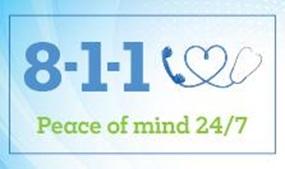Glucose Sensor Technology available for Islanders living with Diabetes
A new program will help fund sensors that allow people with diabetes and their health care team better monitor their sugar levels.
Over 15,000 Islanders live with diabetes, a chronic disease where the body is unable to produce insulin or properly use the insulin it produces. On average, 860 Islanders are diagnosed with diabetes each year.
Glucose sensor technology, often referred to as Continuous Glucose Monitoring (CGM) or Flash Glucose Monitoring Systems is a method to track glucose levels throughout the day and night for those living with diabetes.
Unlike a blood glucose meter which provides just a single glucose reading, glucose sensor systems can provide glucose information every 1-5 minutes and can provide alerts and alarms to warn the individual if their glucose readings are too low or too high.
As of May 18, 2022, applications for funding assistance will be accepted through the P.E.I. Glucose Sensor Program.
The Glucose Sensor Program, which officially launches on June 1, 2022, will give Islanders access to Glucose Sensor Technology at a reduced cost through local P.E.I. Pharmacies.
Out of pocket cost will be based on household income and the existence of private health insurance.
It is anticipated this program will support 1300 Islanders who require intensive management of their diabetes through multiple daily injections of insulin or an insulin pump.
Overall, government is investing 1.1 million into the P.E.I. Glucose Sensor Program.
“Thousands of Islanders live with the expense and health risks of diabetes,” said Ernie Hudson, Minister of Health and Wellness. “By making glucose monitoring more accessible we can help Islanders with diabetes live longer and live better with this disease.”
“With this technology, Islanders living with diabetes can gain valuable insight about their glucose levels, rate, and direction of change, allowing them to better manage their diabetes,” said Martha St. Pierre, Provincial Diabetes Clinical Leader at Health PEI. “This will give Islanders living with diabetes the ability to closely manage their glucose levels, ensuring a greater quality of life.”
Once an application is approved, eligibility will start from the date noted on the approval letter/email and will continue until June 30th the following year.
For the first application, a completed PEI Glucose Sensor Program Initial Family Contribution Assessment and Release of Information form must be submitted to the Glucose Sensor Program Administrator at Health PEI.
The following glucose sensor supplies are eligible for coverage under the P.E.I. Glucose Sensor Program:
- Freestyle Libre sensor or Freestyle Libre 2 sensor
- Dexcom G6 sensor and transmitter
- Medtronic Integrated Guardian or Guardian Connect CGM sensor and transmitter
“Diabetes management can make day-to-day life a challenge, regardless of an individual's age, and now people living with diabetes can manage their condition more effectively, with freedom and confidence.” said Laura Endres, Senior Vice President, North America of Dexcom. “We thank the Prince Edward Island government who has set the precedent that every person on multiple daily injections of insulin deserves access to this technology.”
“We applaud the government of PEI for being the first province in the Atlantic region to fund CGM.” said Laura Cameron, Senior Director of the Diabetes Business at Medtronic Canada. “This will allow patients on an integrated insulin pump system to leverage the benefits of adaptive insulin delivery and opens the door for access to even more automated technologies in the future.”
“Prince Edward Island’s decision to reimburse advanced glucose monitoring technology is another significant and positive step forward for people living with diabetes,” said Philippe Busque, General Manager of Abbott’s Diabetes Care business in Canada. “As leaders in diabetes care, we understand the need – and benefit – to bringing these life-changing technologies to more people. It helps them better manage their condition, leading to improved individual and health system outcomes.”
For more information, visit: P E.I. Glucose Sensor Program or contact diabetesadminofficer@ihis.org or call 1-833-355-0538.
Backgrounder:
Eligibility criteria:
- a permanent resident as defined by the Drug Cost Assistance Act
- a valid PEI Health Card
- Filed your most recent income tax return
- Are diagnosed by a medical practitioner or nurse practitioner as having diabetes and
- Are reliant on an insulin pump or multiple daily injections of insulin (i.e. 3 or more) to manage your diabetes and
- Have a signed Special Authorization form from your medical practitioner, nurse practitioner or certified diabetes educator.
For those without private health insurance the out of pocket expense is outlined in the table below:
| Household income | Co-payment per dispense |
| $0 to $20,000 | $0.00 |
| $20,001 to $40,000 | $10.00 |
| $40,001 to $50,000 | $20.00 |
| $50,001 to $100,000 | $60.00 |
| $100,001 or greater | $80.00 |
If you have private health insurance that provides partial coverage for glucose sensors, your co-payment will be either 20% of a standard copay (Column A) or the amount remaining after payment by your private insurance (Column B), whichever is less:
| Household income | If you have private health insurance: your out of pocket cost will be the either Column A or Column B. (whichever amount is less) |
|
| Column A Co-payment per dispense |
Column B | |
| $0 to $20,000 | $0.00 | The cost remaining after payment by your private health insurance |
| $20,001 to $40,000 | $2.00 | |
| $40,001 to $50,000 | $4.00 | |
| $50,001 to $100,000 | $12.00 | |
| $100,001 or greater | $16.00 | |
For more information about the eligible glucose sensors supplies visit:
Media Contact:
Jessica Bruce
Senior Communications Officer, Health PEI
jessicabruce@gov.pe.ca


